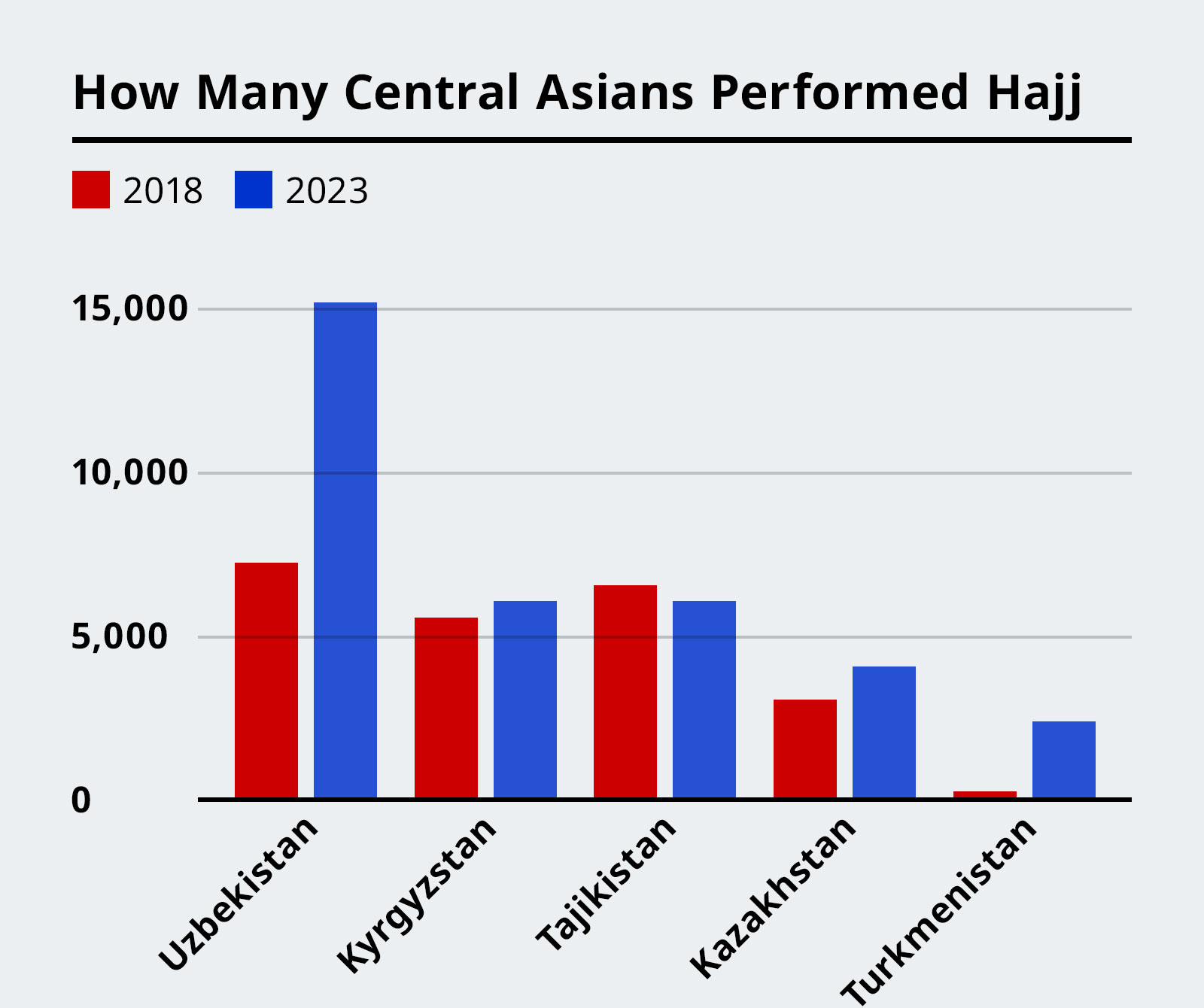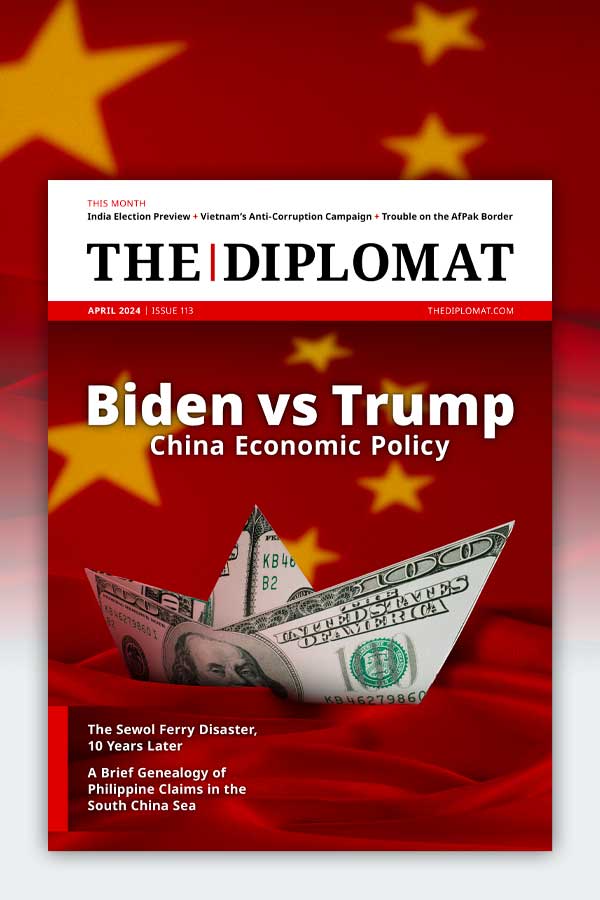| Welcome to the latest issue of Diplomat Brief. This week our top story charts the Islamic State’s targeting of Russia, which culminated in the March 22 attack on the Crocus City Hall. We also have an interview with Enze Han, an associate professor in the Department of Politics and Public Administration at the University of Hong Kong, on China’s multifarious presence in Southeast Asia. |
| Story of the week | ![[object Object]](jpg/feature3860-24.jpg) | Security Islamic State Escalates Anti-Russian Militant CampaignWhat Happened: On March 22, four men stormed the Crocus City Hall, a music venue in Krasnogorsk on the outskirts of Moscow. Islamic State media outlets soon claimed responsibility for the attack, which killed at least 144 people. For many, the attack was a sudden and violent reminder that the Islamic State remains active — particularly through its Afghanistan-Pakistan branch, the Islamic State Khorasan Province (ISKP). In an article for The Diplomat, terrorism researchers Peter Smith, Lucas Webber, and Colin P. Clarke chart the Islamic State’s increasing focus on Russia. Our Focus: Since the days of the Caliphate in 2014, the Islamic State has listed Russia among its enemies. With the emergence of ISKP, the Afghanistan-Pakistan branch of the Islamic State “framed Taliban and Russian interests as intertwined.” In the wake of the U.S. withdrawal in 2021, the authors note, ISKP greatly expanded its media and propaganda efforts, rolling out Russian, Tajik, and Uzbek media wings. “These efforts have aided ISKP’s ability to attract recruits from Central Asia, and — much like it would in Moscow — utilize them in local and international operations.” What Comes Next: The recent attack in Russia was not a surprise; it was the culmination of a campaign targeting Russia that has only intensified in the last few years. With Russia’s intelligence and security resources spread thin due to Moscow’s war in Ukraine, its intervention in Syria, and its PMC operations across Africa, ISKP perceived an opportunity. Moscow’s harsh treatment of the suspects, and wider stigmatization of Central Asians — whether migrant workers or citizens — “will only fuel the sentiments that the Islamic State and ISKP seek to exploit, exacerbating the threat.” Read this story |
| Behind the News | INTERVIEW Enze HanEnze Han, an associate professor in the Department of Politics and Public Administration at the University of Hong Kong, argues that a state-centric approach to understanding China’s relations with Southeast Asia is at best insufficient: “This perspective tends to focus on the actions of the Chinese state and sometimes wrongly assumes that all Chinese actors are aligned with the state’s interests.” Read the interview |
| This Week in Asia | Northeast Asia Taiwan’s Former President Ma Ying-jeou in ChinaMa Ying-jeou, who served as Taiwan’s president from 2008-2016, started an 11-day trip to China on April 1. Ma is known in Taiwan for his friendly approach to China; his tenure oversaw historic advances in cross-strait relations, but Taiwanese society has largely soured on such close ties since. Still, Ma continues to hold high-profile exchanges with the mainland, despite not holding any formal office. He also visited China around this time last year, in a trip that sparked criticism from both Taiwanese and Chinese nationalists. Find out more | South Asia Can the Indian National Congress Be Rejuvenated?Indians will begin voting on April 19, the general election to take place in seven phases between April 19 and June 1. The Bharatiya Janata Party (BJP), led by Narendra Modi, will seek to hold onto the power to has had since 2014. Despite course corrections in the last few years, including a new electoral alliance, India’s grand old party, the Congress, has failed to iterate a grand vision or compelling political narrative to galvanize the imagination of the voters. Any pan-India challenge to the BJP’s political hegemony cannot be envisioned without the Congress. And thus, the party’s revival is critical. Find out more | Southeast Asia Indonesia’s Prabowo Visits China, JapanIndonesia’s President-elect Prabowo Subianto paid a state visit to China this week, his first foreign trip since winning the presidential election in February. In a meeting with Chinese leader Xi Jinping, Prabowo praised the positive trajectory of China-Indonesia relations under President Joko Widodo, as did his host. While Prabowo visited Beijing in his official capacity as defense minister, the invitation was a clear attempt by China’s government to get relations with the incoming Indonesian administration on a good footing, well in advance of Prabowo’s inauguration in October. For his own part, the incoming Indonesian president is hoping, like his predecessor, to harness Chinese know-how to overhaul his country’s infrastructure and promote sustained economic growth. He’s slated to head to Japan next. Find out more | Central Asia In Kyrgyzstan Pendulum Swings Hard Against Matraimov With ArrestOver the last five years, Kyrgyz authorities have repeatedly had their hands on notoriously corrupt former official Raimbek Matraimov and each time let him go. Days after breaking up what the authorities called an assassination plot in late March, Matraimov was detained and extradited from Azerbaijan to Kyrgyzstan, along with three of his brothers. He’s in pre-trial detention, facing charges of kidnapping and money laundering. He’s escaped punishment before. Will this time be any different? Find out more |
| Visualizing APAC |  | Over the last five years, the number of Central Asians performing hajj – a journey to Mecca and Medina that Muslims view as a mandatory religious duty to make once in a lifetime – has grown, driven by notable increases in the numbers of Uzbeks and Turkmen making the trip. See the full picture |
| Word of the Week | Society 刷单Shuādān, literally “brushing” in Mandarin, is slang for amassing fake transactions to boost seller ratings on an e-commerce site. Find out more |
|  |

![[object Object]](jpg/feature3860-24.jpg)

